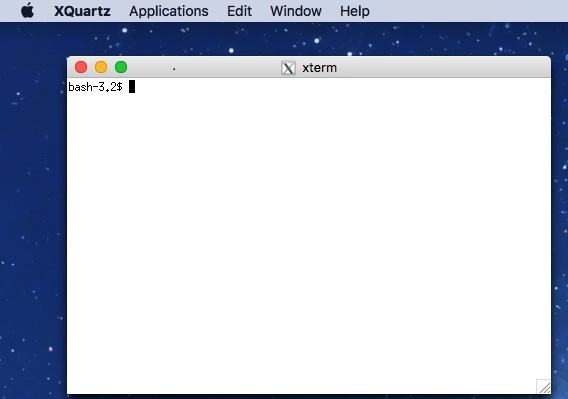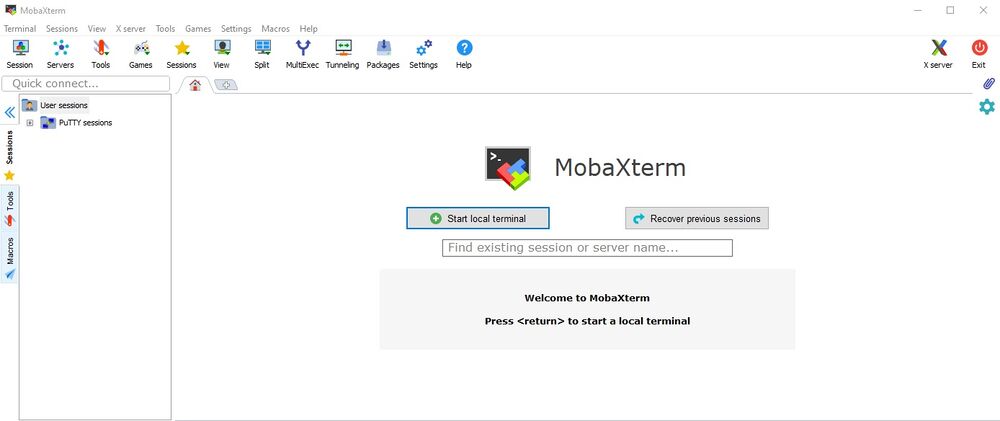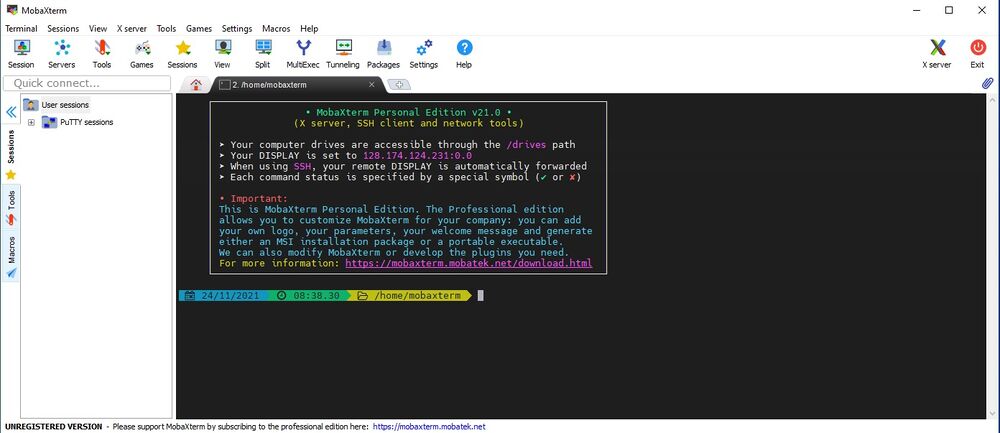Xserver Setup: Difference between revisions
Jump to navigation
Jump to search
| Line 27: | Line 27: | ||
= Testing = | = Testing = | ||
* A good test is to run the program | * A good test is to run the program '''xterm'''. Most hosts will have this installed. It will open up a graphical terminal box. | ||
<pre>[username@hostname ~]$ xterm</pre> | <pre>[username@hostname ~]$ xterm</pre> | ||
Revision as of 15:36, 29 November 2021
MAC OSX
- Download XQuartz at http://xquartz.macosforge.org/landing/
- Install XQuartz and be sure to restart the computer after the installation is done.
- Open XQuartz by going to Go->Utilities->XQuartz
- Type in the following to connect to a remote server
ssh -X yournetid@destination.server.edu
- The -X after "ssh" tells the computer to connect using Xserver
- yournetid - is your university netid
- destination.server.edu - the server you would like to connect too (example: biologin.igb.illinois.edu)
Windows with MobaXterm
- MobaXTerm includes an xserver. This is the easiest method on a windows computer
- Download and install MobaXterm at https://mobaxterm.mobatek.net/
- Open MobaXterm and select Start local terminal
- Type in the following to connect to a remote server
ssh -X yournetid@destination.server.edu
- The -X after "ssh" tells the computer to connect using Xserver
- yournetid - is your university netid
- destination.server.edu - the server you would like to connect too (example: biologin.igb.illinois.edu)
Testing
- A good test is to run the program xterm. Most hosts will have this installed. It will open up a graphical terminal box.
[username@hostname ~]$ xterm


